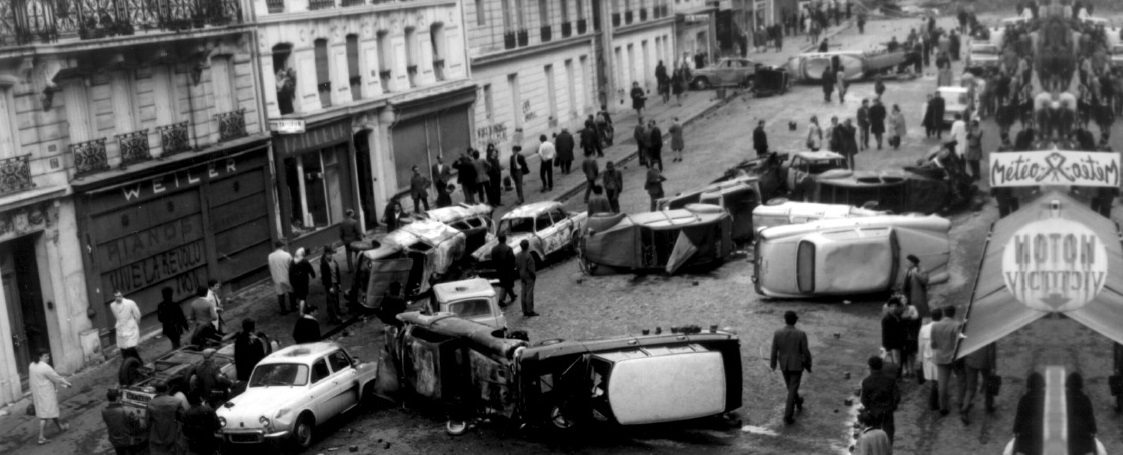
On the fiftieth anniversary of May ’68, Chris Reynolds introduces his book Memories of May ’68: France’s Convenient Consensus.
The commemorative fervour currently sweeping France on the topic of mai 68 is further confirmation of the thesis set out in Memories of May ’68: France’s Convenient Consensus. In it, I outline and analyse the role the decennial anniversaries of the French events in shaping the dominant, narrow narrative of this seminal moment. Having attended and spoken at one of the innumerable events that are taking place in Paris during the month of May to mark the 50th anniversary, one is struck by the continuation of what is described in Memories of May ’68 as a veritable ‘industry’ that surrounds this period. These periodic surges in interest have consistently spawned an outpouring of publications, events and media attention, all of which have played a key role in determining a certain doxa around how these events are remembered, the impact of which features as a specific chapter drawing on the results of a questionnaire carried out among over 500 French students. The vast majority of material produced to coincide with the decennial anniversaries between 1978–2008 has progressively consolidated a certain dominant perspective of mai 68 where the events take place exclusively in the capital, are dominated by the actions of students, and are limited to the few weeks of May running from the 3rd to the 31st of May. However, Memories of May ’68 concludes with the suggestion that amid the white noise of the commemorative industry there were some lucid moments from the 40th anniversary a decade ago that provided hope for future anniversaries. While the 50th anniversary may well have seen the continuation in the now traditional commemorative industry, it is possible to see a continuation and even a strengthening of the challenge to the dominant narrative. Geographically, the optic is being increasingly widened to tell the story of this nationwide revolt. On a transnational level, there are emergent studies on what could be described as ‘peripheral’ 68s. In terms of the participants, students remain the focus of much attention. However, there has clearly been an attempt to break out of this restrictive representation and shine a light on the sheer diversity that saw the participation of so many people from right across French society. Finally, though the term ‘mai 68’ still tends to dominate in popular parlance when referring to this time, the increasingly prevalent use of the broader années 68 to capture a longer timeframe from the mid-1960s to the mid-1970s is yet further proof of how the hitherto limiting parameters of the doxa are being challenged and redefined. As Memories of May ’68 argues, the events of May–June 1968 remain the focus of intense interest and debate in France – 50 years on, they remain relevant and important for making sense of contemporary France and provide a potent case-study for anyone interested in the processing of memory.
Chris Reynolds is Associate Professor of Contemporary French and European Studies at Nottingham Trent University.


